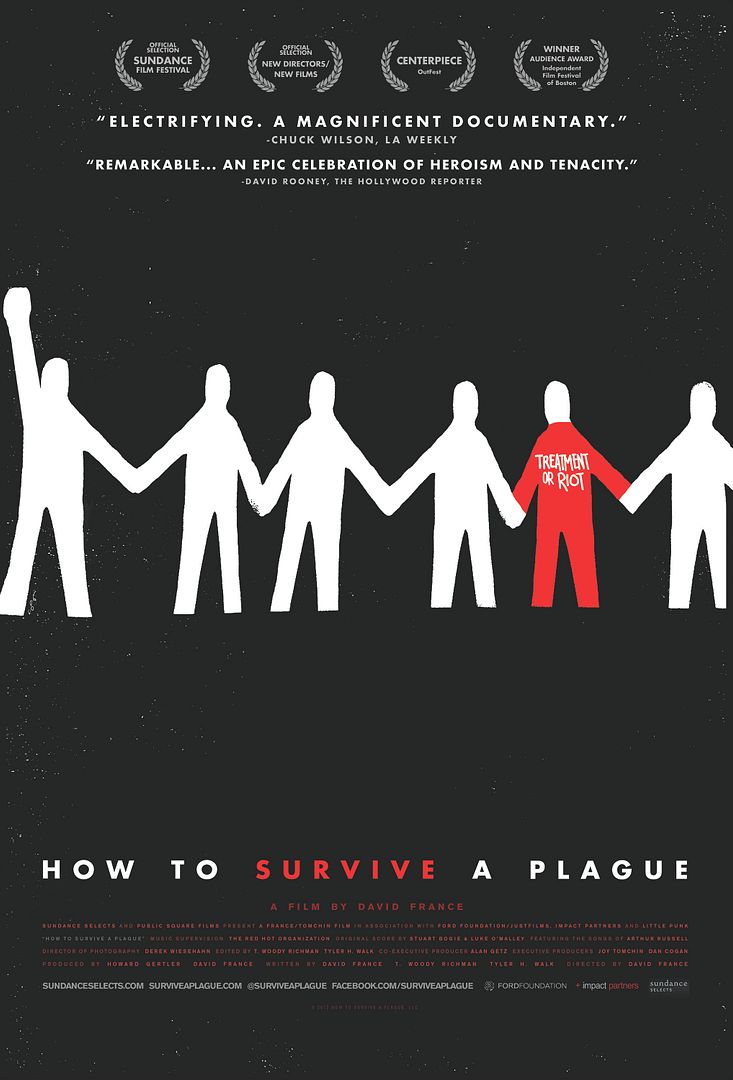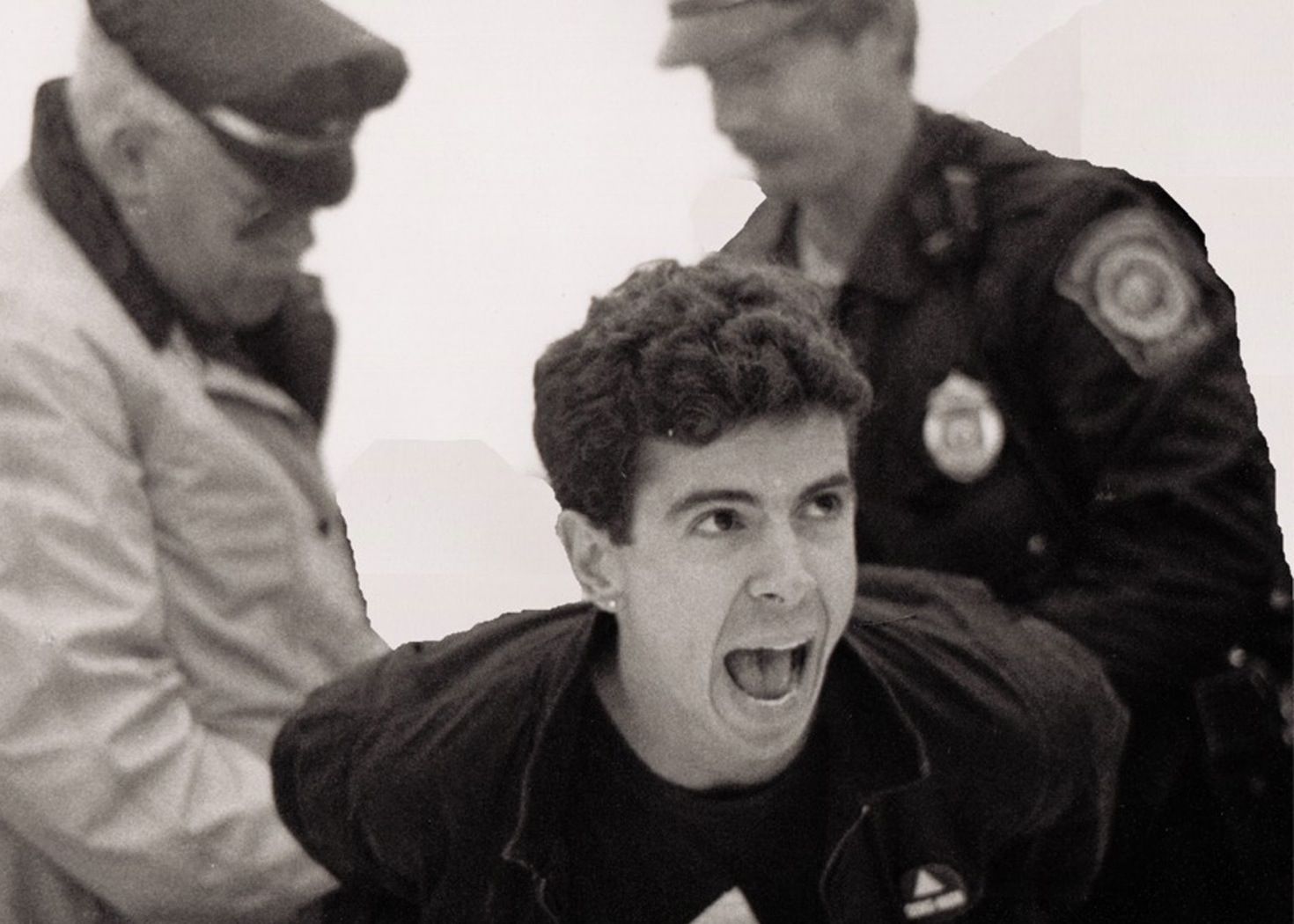
The history of science movies nominated for Oscars is not a very long one. Aside from the technical achievement awards or an occasional nomination for acting merits, the Best Picture category has historically not opened its doors to scientific content, save for notable nominees “A Clockwork Orange,” “District 9,” “Inception” and “Avatar.” A documentary about science has never been nominated for the Best Documentary category, until this year, with How To Survive a Plague, Director David France’s stunning account of the brave activists that brought the AIDS epidemic to the attention of the government and science community in the disease’s darkest early days. “Plague” set history last weekend by becoming the first “Best Documentary” nominee with an almost entirely scientific/biomedical narrative. More importantly, it also established a standard by which future science documentaries should use emotional storytelling to captivate audiences and inspire action. ScriptPhD review and discussion under the “continue reading” cut.
“How To Survive a Plague” picks up where groundbreaking companion AIDS film “And the Band Played On” drops off, around 1987, with the formation of the AIDS Coalition to Unleash Power (ACT UP) advocacy group, which is the central protagonist of the documentary. The AIDS virus had been identified, isolated and diagnosed in patients. But as a running ticker throughout the movie reminds us, the AIDS death toll knew no limit. By 1988, 70,000 people had already perished, a number that would climb to an astonishing 500,000 by 1997. Complacency and frustration were the norm among medical professionals, who treated patients with a series of “what the hell” drugs, when they’d even consider treating them. The scientific community, although recognizing that research was necessary, devoted little money or manpower. Even early drugs that showed experimental efficacy or relieved symptoms in AIDS patients were dismissed.
Scientists and the government were the targets of ACT UP’s fury and protests.

But by the late 80s/early 90s, ACT UP’s mission had reached a critical Phase II: conformity. Extremists and truculent zealots were dismissed to the sidelines, while the group became self-made scientists, learning everything from medicine to virology and immunology to chemistry. Rather than shut down the FDA for a day like they’d done years ago, they showed up to a scientific meeting in suits and ties to hand out a well-thought-out publication worthy proposal on AIDS research and treatment timelines. Impressed scientists took note. By the time charming ACT UP leader Peter Staley addresses an international convention meeting of the American Society for Microbiology, he is given a standing ovation. ACT UP’s fight, the fight of the gay community, had now become a global fight.
In many ways, “How To Survive a Plague” is an emotional contrast to “And the Band Played On,” even though the former is a documentary largely consisting of reel footage of the events it portrays, while the latter is a dramatized account of scientists racing to find the identity of the AIDS virus. Although “Band” touches briefly on the fear, government insouciance and distrust within the gay community in the earliest days of the bourgeoning epidemic, it is very much a pure science film. Its themes of persistence, no-holds-barred competition, stunningly accurate epidemiology and virology details and race to an answer could be about any virus in any historical time. “Plague” puts all of the science and medicine of the AIDS crisis in an emotional and historical context. A running death ticker as the years pass lends an urgency to the battle of the ACT UP activists. Moreover, France inserts actual footage of their protests (the most famous being an all-day takeover of the National Institutes of Health), meetings and press conferences, and difficult-to-watch footage of AIDS that shines an intimate spotlight of realism on the crisis. As France notes, the AIDS crisis burgeoned concomitantly with the appearance of the camcorder, making early AIDS activists “the very first social movement to shoot a world the dominant culture was ignoring.”

Scientists in the movie range from heroes and anti-heroes to ordinary people, which is a rarity in entertainment media. By far the biggest hero is Dr. Iris Long, a chemist with 20 years of experience in retroviral drug development. Although she knew no one with AIDS and never met a homosexual in her life, Dr. Long became a mentor and science advisor to ACT UP. Her fearless leadership and ability to educate the members led to direct reforms at the FDA and NIH. Other members like Bill Bahlman (the first to demand a direct drug treatment for AIDS) and Garance Franke-Ruta (a high school drop out and science nerd who became the group’s leading advocate for science-based activism) led the internal change to join forces with scientists rather than fighting them. And for every scientist that ignored the AIDS crisis was a research pioneer like Anthony Faucci, now head of the NIH Institute of Allergy and Infectious Disease, or a Merck chemist leading the development of anti-retroviral drugs. Moments after a graphics-filled technical explanation of how anti-retroviral drugs inhibit HIV virus replication, one of the Merck scientists interviewed in the film broke down into tears when recollecting the enormity of what they’d accomplished. It’s a stunning, raw moment in a film filled with them. Recent advances in writing for sci-fi have painted more complex, human depictions of scientists and researchers. But such insights are far too rare in documentaries.
In a strangely macabre way, “Plague” is an emotional feel good story, but one that isn’t over yet. Through the darkest days of rallying a tone-deaf world, all the while losing members day by day, ACT UP’s commitment and perseverance never failed. By the time surviving members, some of whom professed in footage that they never expected to live, are finally revealed in the present day in the film’s last act, the audience is flooded with gratitude and catharsis. The science world, which once didn’t know what to make of this emerging virus, took only one year from the time the first protease inhibitor hit the market to come up with and approve the current three-drug treatment cocktail.
But the film’s unstated, looming conclusion is that we will never get back the millions of people who died during a decade of silence. Too many people continue to perish, most in what has become a new frontier for the AIDS crisis. The fight for a cure or prevention is not over. And a new plague could always be around the corner. It is our hope that future documentarians take note of both the film’s message and its delivery style.
Take a look at the official trailer for “How To Survive a Plague”:
~*ScriptPhD*~
*****************
ScriptPhD.com covers science and technology in entertainment, media and advertising. Hire our consulting company for creative content development.
Subscribe to free email notifications of new posts on our home page.
]]>
